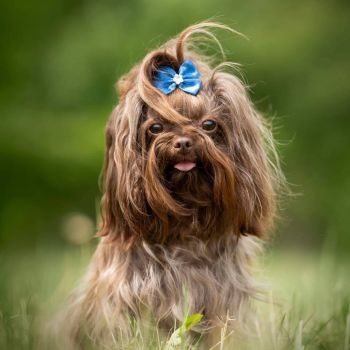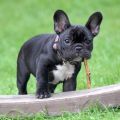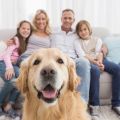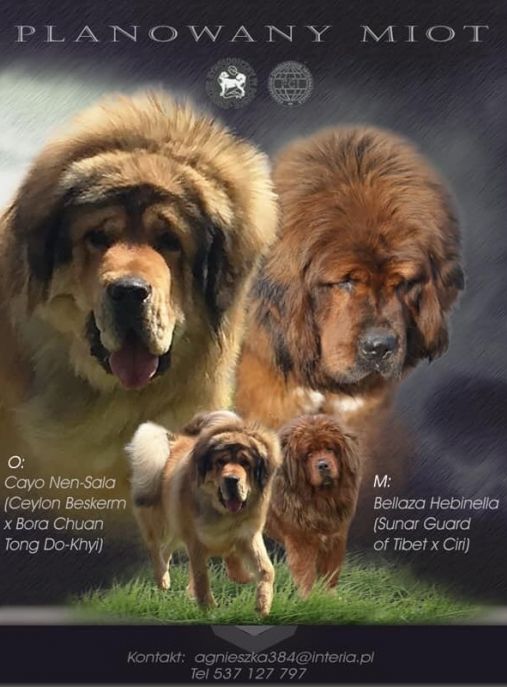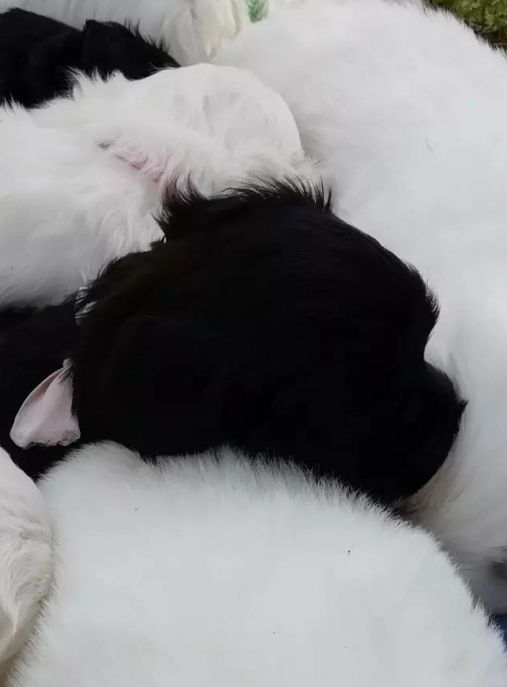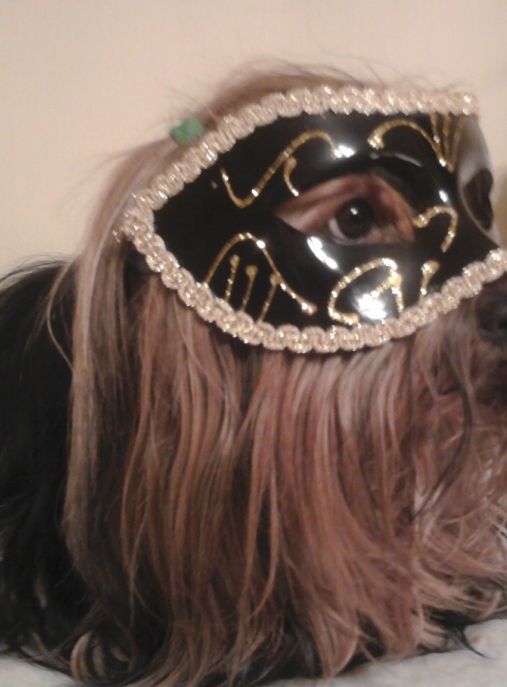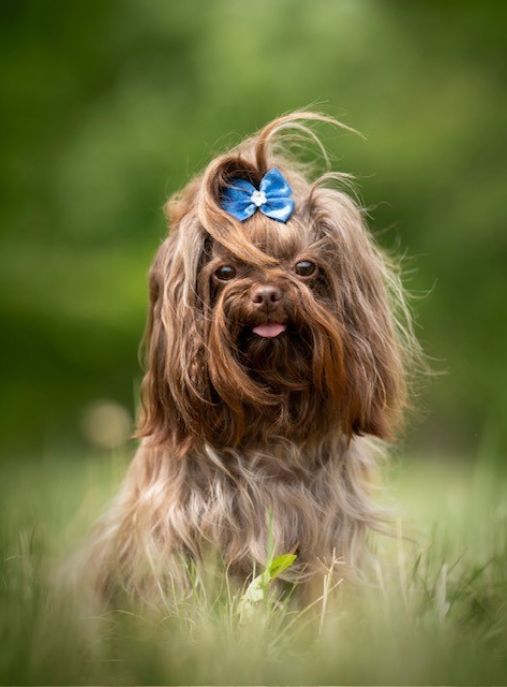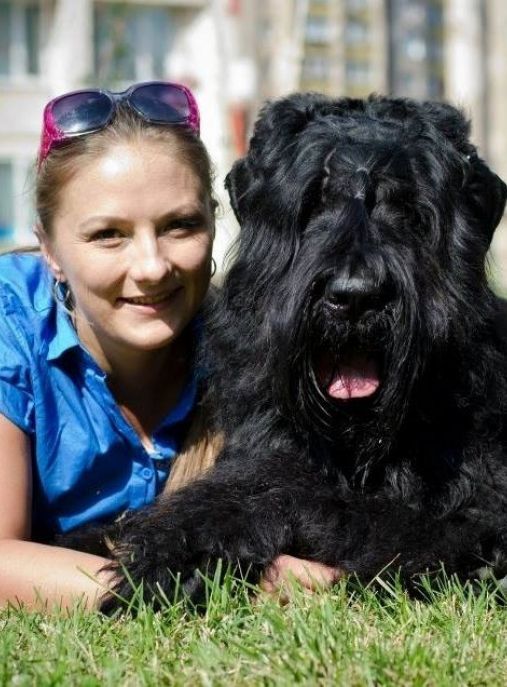Russian Tsvetnaya Bolonka - the breed description to be published
The Russian Tsvetnaya Bolonka, also known as the Bolonka Zwetna or the Russian Colored Lapdog, is a delightful breed known for its charming character and affectionate nature. These small-sized dogs have a unique appearance with their long, wavy, and colorful coats, which make them stand out in a crowd. However, their character traits go far beyond their physical appearance.
One of the most prominent characteristics of the Tsvetnaya Bolonka is their friendly and sociable nature. They are incredibly people-oriented and thrive on human companionship. These dogs form strong bonds with their owners and are known to be loyal and devoted. They love being a part of the family and enjoy spending quality time with their loved ones.
Despite their small size, Tsvetnaya Bolonkas are confident and fearless. They possess a curious and adventurous spirit, always eager to explore their surroundings. This breed is known for its intelligence and quick learning abilities, making them relatively easy to train. They are eager to please their owners and respond well to positive reinforcement techniques.
Tsvetnaya Bolonkas are generally good with children and other pets, making them an excellent choice for families. They are patient and gentle, making them suitable companions for kids. However, as with any dog breed, early socialization is crucial to ensure they grow up to be well-rounded and well-behaved dogs.
When it comes to exercise, Tsvetnaya Bolonkas have moderate energy levels. They enjoy daily walks and playtime but are also content with indoor activities. These dogs are adaptable and can thrive in both apartments and houses, as long as they receive adequate mental and physical stimulation.
Grooming the Tsvetnaya Bolonka's long, wavy coat requires regular attention. Their hair can become easily tangled, so daily brushing is recommended to prevent matting. Regular bathing, nail trimming, and teeth brushing are also essential parts of their grooming routine.
To raise and train a Tsvetnaya Bolonka successfully, it is important to establish a consistent and positive training regimen. Early socialization is crucial to expose them to various people, animals, and environments. Positive reinforcement techniques, such as treats, praise, and play, work best with this breed. They are sensitive dogs, so harsh training methods should be avoided.
Additionally, providing mental stimulation is essential for the Tsvetnaya Bolonka's well-being. Puzzle toys, interactive games, and obedience training sessions can help keep their minds sharp and prevent boredom.
In conclusion, the Tsvetnaya Bolonka is a delightful and affectionate breed with a friendly and sociable nature. They are intelligent, easy to train, and get along well with children and other pets. With proper socialization, grooming, and training, these dogs make wonderful companions for individuals and families alike.
The Russian Tsvetnaya Bolonka, also known as the Bolonka Zwetna or the Russian Colored Bichon, is a small and charming breed that requires specific care to ensure their health and happiness. Here are some tips on how to care for these adorable dogs, including what to do and what not to do:
1. Grooming: The Bolonka's coat is one of its most distinctive features. It is long, curly, and requires regular grooming to prevent matting and tangling. Brush their coat at least two to three times a week using a slicker brush or a comb. Regular grooming will also help maintain the coat's natural shine and prevent excessive shedding.
2. Bathing: Bolonkas have a low-shedding coat, but they still require regular bathing to keep their fur clean and healthy. Bathe them every four to six weeks using a mild dog shampoo. Be sure to dry them thoroughly after each bath to prevent skin irritation.
3. Dental Care: Like all dogs, Bolonkas need regular dental care to maintain good oral hygiene. Brush their teeth at least two to three times a week using a dog-specific toothbrush and toothpaste. Regular dental care will help prevent dental diseases and bad breath.
4. Exercise: Despite their small size, Bolonkas are energetic dogs that require regular exercise to stay fit and mentally stimulated. Take them for daily walks, play fetch, or engage in interactive games to keep them active. However, avoid excessive exercise as they are prone to joint problems.
5. Socialization: Bolonkas are social dogs that thrive on human companionship. They enjoy being part of the family and should not be left alone for long periods. Socialize them from an early age by exposing them to different people, animals, and environments. This will help them develop into well-rounded and confident dogs.
6. Training: Bolonkas are intelligent and eager to please, making them relatively easy to train. Use positive reinforcement techniques such as treats, praise, and rewards to motivate them. However, avoid harsh training methods as they can be sensitive and may become fearful or anxious.
7. Health Care: Regular veterinary check-ups are essential to ensure the overall health of your Bolonka. Vaccinations, parasite prevention, and annual health exams are necessary to keep them protected against common diseases. Additionally, be aware of breed-specific health issues such as dental problems, allergies, and patellar luxation.
8. Nutrition: Provide a balanced and nutritious diet to support your Bolonka's overall health. Choose high-quality dog food that meets their specific needs, considering their age, size, and activity level. Avoid overfeeding to prevent obesity, which can lead to various health problems.
9. Safety: Bolonkas are small dogs, so it's crucial to ensure their safety at all times. Secure your home and yard to prevent them from escaping or getting into hazardous situations. Use a harness instead of a collar for walks to prevent neck injuries, and never leave them unattended near water sources.
10. Love and Affection: Finally, shower your Bolonka with love, attention, and affection. They are loyal and devoted companions who thrive on human interaction. Spend quality time with them, provide mental stimulation through interactive toys, and create a loving and nurturing environment.
Remember, each Bolonka is unique, and their care may vary slightly. Always consult with a veterinarian or a professional dog trainer for personalized advice based on your dog's specific needs. With proper care, your Russian Tsvetnaya Bolonka will bring you years of joy and companionship.
The Tsvetnaya Bolonka, also known as the Russian Colored Bichon, is a small and charming breed that originated in Russia. One of the most distinctive features of these dogs is their unique and varied coat colors. While they come in a range of shades, the most common color of the Tsvetnaya Bolonka is a stunning combination of black, white, and tan.
The primary color of the Tsvetnaya Bolonka's coat is black, which forms the base of their beautiful coloration. The black fur is usually dense and lustrous, giving the dog an elegant and sophisticated appearance. It covers most of the body, including the back, sides, and tail. The black coloration often extends from the top of the head down to the tip of the tail, creating a striking contrast against the other colors.
Accompanying the black fur, the Tsvetnaya Bolonka showcases patches of white throughout its coat. These white patches can vary in size and shape, adding a touch of brightness and contrast to the overall color scheme. The white areas are commonly found on the chest, paws, and sometimes on the face. They create a beautiful juxtaposition against the black and tan colors, enhancing the dog's overall appearance.
The tan coloration is another prominent feature of the Tsvetnaya Bolonka's coat. It is typically seen in specific areas, such as the eyebrows, cheeks, and legs. The tan color can range from a light sandy hue to a deeper shade of brown, depending on the individual dog. This warm color adds depth and richness to the overall coat, complementing the black and white elements.
The combination of black, white, and tan in the Tsvetnaya Bolonka's coat creates a harmonious and eye-catching color palette. The contrast between these colors gives the dog a distinctive and unique appearance, setting it apart from other breeds. The black provides a solid foundation, while the white and tan patches add brightness and warmth, resulting in a visually appealing and balanced coat.
It is important to note that while the black, white, and tan coloration is the most common, Tsvetnaya Bolonkas can also come in other color variations. Some individuals may have more extensive white patches, while others may have less tan or even additional colors such as gray or red. These variations only add to the breed's charm and individuality, making each Tsvetnaya Bolonka a truly unique and beautiful companion.
In conclusion, the common color of the Tsvetnaya Bolonka is a captivating combination of black, white, and tan. This color scheme, with its contrasting elements, creates a visually striking and aesthetically pleasing coat. Whether it's the black base, the white patches, or the warm tan accents, the Tsvetnaya Bolonka's coat is a true testament to the breed's beauty and allure.
The Russian Tsvetnaya Bolonka, also known as the Bolonka Zwetna or the Russian Colored Bichon, is a small and charming breed that originated in Russia. These dogs are known for their friendly and affectionate nature, making them wonderful companions and family pets. When it comes to their health, the Russian Tsvetnaya Bolonka is generally a robust and healthy breed. However, like any other dog breed, they can be prone to certain health issues.
One of the most common health problems seen in Russian Tsvetnaya Bolonkas is dental issues. Small breeds, in general, are more susceptible to dental diseases such as periodontal disease, tooth decay, and gum infections. Regular dental care is crucial for maintaining their oral health. This includes daily brushing of their teeth using a dog-specific toothbrush and toothpaste, as well as providing them with appropriate chew toys to help keep their teeth clean.
Another common health concern in this breed is allergies. Russian Tsvetnaya Bolonkas can be prone to both food and environmental allergies. Food allergies can manifest as skin irritations, itching, and gastrointestinal issues. It is important to provide them with a balanced and high-quality diet, avoiding common allergens such as grains, artificial additives, and certain proteins. Environmental allergies, on the other hand, can cause skin irritations, itching, and respiratory problems. Regular grooming, including bathing and brushing, can help reduce allergens on their coat and skin.
Patellar luxation is another health issue that can affect Russian Tsvetnaya Bolonkas. This condition occurs when the kneecap slips out of its normal position, causing pain and lameness. Regular exercise and maintaining a healthy weight can help prevent this condition. If your dog shows signs of limping or difficulty walking, it is important to consult with a veterinarian for proper diagnosis and treatment.
Eye problems, such as cataracts and progressive retinal atrophy (PRA), can also occur in this breed. Regular eye examinations by a veterinarian can help detect any early signs of these conditions. Additionally, maintaining a healthy diet rich in antioxidants, such as fruits and vegetables, can support overall eye health.
To ensure the overall well-being of your Russian Tsvetnaya Bolonka, regular veterinary check-ups are essential. These visits allow the veterinarian to monitor their health, administer necessary vaccinations, and perform routine tests. It is also important to keep up with their vaccination schedule to protect them from common canine diseases.
Proper nutrition is vital for the health of Russian Tsvetnaya Bolonkas. Providing them with a balanced and high-quality diet that meets their nutritional needs is crucial. Consult with your veterinarian to determine the best diet for your dog, taking into consideration their age, activity level, and any specific dietary requirements.
Regular exercise is important for maintaining the overall health and well-being of Russian Tsvetnaya Bolonkas. These dogs are energetic and enjoy daily walks, playtime, and mental stimulation. Engaging them in activities that challenge their intelligence, such as puzzle toys or obedience training, can help keep them mentally sharp and prevent behavioral issues.
In conclusion, while the Russian Tsvetnaya Bolonka is generally a healthy breed, they can be prone to certain health issues like dental problems, allergies, patellar luxation, and eye conditions. By providing proper dental care, a balanced diet, regular exercise, and routine veterinary check-ups, you can help ensure the health and happiness of your Russian Tsvetnaya Bolonka.
The Russian Tsvetnaya Bolonka, also known as the Bolonka Zwetna or the Russian Colored Bichon, is a small breed of dog that originated in Russia. These adorable and affectionate dogs require a well-balanced and nutritious diet to maintain their overall health and well-being. Proper nutrition plays a vital role in ensuring their growth, development, and longevity.
When it comes to feeding a Russian Tsvetnaya Bolonka, it is essential to provide them with high-quality dog food that meets their specific nutritional needs. Look for dog food that is specifically formulated for small breeds, as they have different requirements compared to larger dogs. The food should contain a good balance of proteins, fats, carbohydrates, vitamins, and minerals.
Protein is a crucial component of a dog's diet, as it helps in muscle development and repair. Look for dog food that lists a high-quality source of animal protein, such as chicken, turkey, or fish, as the primary ingredient. Avoid dog food that contains excessive amounts of fillers or by-products, as these can be difficult for your Bolonka to digest.
Fats are another essential nutrient for Russian Tsvetnaya Bolonkas, as they provide energy and help in the absorption of fat-soluble vitamins. However, it is important to ensure that the fat content in their diet is moderate and comes from healthy sources, such as fish oil or chicken fat. Avoid dog food that contains excessive amounts of unhealthy fats, such as trans fats or saturated fats.
Carbohydrates are a source of energy for dogs, but it is important to choose complex carbohydrates that are easily digestible. Look for dog food that contains whole grains like brown rice or oats, as they provide a slow and steady release of energy. Avoid dog food that contains excessive amounts of simple carbohydrates, such as corn or wheat, as these can lead to weight gain and digestive issues.
In addition to a balanced diet, it is important to provide your Russian Tsvetnaya Bolonka with fresh and clean water at all times. Hydration is crucial for their overall health and helps in maintaining proper organ function.
When it comes to feeding schedules, it is recommended to divide their daily food intake into two or three meals to prevent overeating and aid digestion. Avoid free-feeding or leaving food out all day, as this can lead to obesity and other health issues.
It is important to note that every dog is unique, and their nutritional needs may vary based on factors such as age, activity level, and overall health. It is always a good idea to consult with a veterinarian to determine the specific dietary requirements for your Russian Tsvetnaya Bolonka.
In conclusion, providing a well-balanced and nutritious diet is essential for the health and well-being of Russian Tsvetnaya Bolonka dogs. Choose high-quality dog food that meets their specific nutritional needs, focusing on a good balance of proteins, fats, carbohydrates, vitamins, and minerals. Avoid excessive fillers, by-products, unhealthy fats, and simple carbohydrates. Remember to provide fresh water at all times and consult with a veterinarian for personalized dietary advice. By following these guidelines, you can ensure that your Russian Tsvetnaya Bolonka remains happy, healthy, and full of energy.

